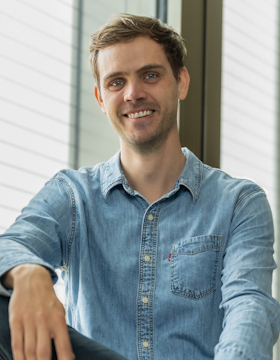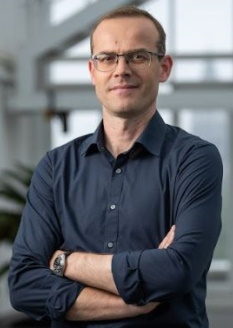Human Movement Science | Master (accredited)
Welcome to the Master's Program
Der Studiengang Human Movement Science in Chemnitz bietet:- Eine deutschlandweit einzigartige Laborausstattung zur 3D-Bewegungsanalye,
- weltweite Kooperation für Praxissemester und
- einen Abschluss, der eine Vielzahl an Berufsmöglichkeiten eröffnet.
Der Schwerpunkt liegt auf der naturwissenschaftlichen Betrachtung menschlicher Bewegung in den Bereichen Gesundheit, Arbeit und Sport. Dies wird durch klinische, biomechanische und bewegungswissenschaftliche Inhalte umgesetzt.
Das Praxissemester mit Projekt und Praktikum im Bereich der Bewegungswissenschaft ermöglicht praktische Tätigkeiten in potenziellen Berufs- und Forschungsfeldern in denen die erworbenen Kenntnisse praktisch umgesetzt werden können. Die zum Teil englischsprachige Ausbildung fördert das Einschlagen eines internationalen Karrierewegs.
Das Masterstudium eröffnet vielfältige Berufsmöglichkeiten, z.B. in den Bereichen der Sport- und Bewegungstherapie, der medizinischen Trainingstherapie in Rehabilitationseinrichtungen und Kliniken, der Evaluation, der Orthopädie- und Rehabilitationstechnik, der Sportvereine sowie der Forschungs- und Entwicklungsarbeit bei Sportartikelherstellern. Zudem ergibt sich im Bereich der Arbeitsplatzgestaltung und auf dem Gebiet der Ergonomie ein potenzieller Arbeitsmarkt.
Mehr über den Studiengang Human Movement Science erfährst du hier im Video:
Admission requirements: Abgeschlossenes Bachelorstudium im Bereich der Sportwissenschaften oder Ingenieurswissenschaften mit Vertiefung an der Schnittstelle von Mensch und Technik (z.B. BA Sports Engineering oder BA Medical Engineering).
Standard study period: 4 Semester
Degree: Master of Science (M. Sc.)
Starting: usually in the winter semester
Career Prospects
The Master's degree program in Human Movement Science qualifies students for a wide range of activities:
- Planning and implementation of empirical research projects (experimental research, data collection and statistical data analysis, written and oral communication of the results at a scientific level)
- Conducting and assessing movement-oriented diagnostics
- Planning and monitoring of sports and training therapy interventions in clinics and rehabilitation facilities
- Assessment of physical stress and strain at the workplace
- Conception and setup of measuring stations for the performance of motion analyses
- Conducting scientific teaching
- Preparation and processing of health and exercise-related data
Job market
The training in basic fields and methods of exercise science opens up a wide range of opportunities in the private sector, e.g. in the areas of sports and exercise therapy, medical training therapy in rehabilitation facilities and clinics, evaluation, orthopedic and rehabilitation technology, sports clubs, and research and development work at sporting goods manufacturers. In addition, graduates are able to perform scientific activities at universities and research institutes due to their in-depth scientific education. In addition, the in-depth study of human movement in the work environment and in the field of ergonomics opens up a potential job market in the area of workplace design. Particularly within the automotive industry, which has a strong economic presence in Germany, there is an increased demand for specialists with appropriate practical training.
The labor market for movement scientists offers good employment opportunities. Due to the demographic age structure, there is currently and in the future a high demand for professionally qualified movement specialists.
Structure
The objective of this degree program is to provide comprehensive training in movement science issues, starting with the analysis of human movement and motor function, through program-controlled data utilization, to computer-based modeling of complex movement tasks. The application of this knowledge in the areas of health and human-machine interaction is a desired core competency for future graduates. Among the topics, which are located in the immediate environment of the study program are:
- Ergonomics at work,
- individual fitting and effectiveness of prosthetic and orthotic care,
- recording and assessing human movement behavior in specific disease conditions,
- interpretation and usage of sensor signals for biofeedback,
- Disability Management and
- development of assistance systems for individual mobility maintenance
Application
Die Bewerbung für ein Studium für deutsche Studieninteressent:innen erfolgt online über das Bewerbungsportal.
Weiterführende Informationen und Hinweise zur Studienaufnahme sind auf der Website des Studierendenservice zu finden.
Requirements
Abgeschlossenes Bachelorstudium im Bereich der Sportwissenschaften oder Ingenieurswissenschaften mit Vertiefung an der Schnittstelle von Mensch und Technik (z.B. BA Sports Engineering oder BA Medical Engineering).
Consulting
Subject Advisory Service

Professorship of Human Locomotion
-
Phone:+49 371 531-38823
-
Email:
-
Address:Thüringer Weg 11, 09126 Chemnitz
-
Room:
Audit Committee Chair

-
Phone:+49 371 531-32936
-
Email:
-
Address:Thüringer Weg 11, 09126 Chemnitz
-
Room:
Rules and Regulations
Studien- und Prüfungsordnung Master Human Movement Science




